
Discover the Charm of Vieux Tours
Nestled in the heart of Tours, Vieux Tours is a captivating blend of medieval charm and modern vitality. This historic quarter is a treasure trove of narrow cobblestone streets, half-timbered houses, and vibrant squares that evoke the romance and history of old France. As you wander through the labyrinthine alleys, you'll encounter picturesque cafes, artisan shops, and bustling markets that offer a glimpse into the local way of life. One of the highlights of Vieux Tours is the Place Plumereau, a lively square surrounded by timber-framed houses dating back to the 15th century. This square is the perfect spot to relax with a glass of Loire Valley wine and watch the world go by. The square is especially enchanting in the evening when the buildings are beautifully illuminated, creating a magical atmosphere. The neighborhood is also home to the stunning Saint-Gatien Cathedral, an architectural masterpiece that showcases the evolution of Gothic style. The cathedral's magnificent stained glass windows and intricate stone carvings are a testament to the craftsmanship of a bygone era. Nearby, the Musée des Beaux-Arts de Tours offers a rich collection of art, including works by Rubens and Rembrandt, housed in a former archbishop's palace. Vieux Tours is not just about history; it's a vibrant area with a thriving cultural scene. Throughout the year, the neighborhood hosts various festivals, street performances, and open-air concerts that add to its lively ambiance. Whether you're a history buff, an art lover, or simply looking to soak up the local culture, Vieux Tours promises an unforgettable experience.
Local tips in Vieux Tours
- Wear comfortable shoes for walking the cobblestone streets.
- Visit Place Plumereau in the evening for a magical atmosphere.
- Take a guided tour to learn about the rich history of Saint-Gatien Cathedral.
- Check the local event calendar for festivals and street performances.
- Try local Loire Valley wines at one of the many cafes.
Discover the Charm of Vieux Tours
Nestled in the heart of Tours, Vieux Tours is a captivating blend of medieval charm and modern vitality. This historic quarter is a treasure trove of narrow cobblestone streets, half-timbered houses, and vibrant squares that evoke the romance and history of old France. As you wander through the labyrinthine alleys, you'll encounter picturesque cafes, artisan shops, and bustling markets that offer a glimpse into the local way of life. One of the highlights of Vieux Tours is the Place Plumereau, a lively square surrounded by timber-framed houses dating back to the 15th century. This square is the perfect spot to relax with a glass of Loire Valley wine and watch the world go by. The square is especially enchanting in the evening when the buildings are beautifully illuminated, creating a magical atmosphere. The neighborhood is also home to the stunning Saint-Gatien Cathedral, an architectural masterpiece that showcases the evolution of Gothic style. The cathedral's magnificent stained glass windows and intricate stone carvings are a testament to the craftsmanship of a bygone era. Nearby, the Musée des Beaux-Arts de Tours offers a rich collection of art, including works by Rubens and Rembrandt, housed in a former archbishop's palace. Vieux Tours is not just about history; it's a vibrant area with a thriving cultural scene. Throughout the year, the neighborhood hosts various festivals, street performances, and open-air concerts that add to its lively ambiance. Whether you're a history buff, an art lover, or simply looking to soak up the local culture, Vieux Tours promises an unforgettable experience.
Iconic landmarks you can’t miss
Vieux Tours
Discover the enchanting streets of Vieux Tours, a historical landmark rich in culture, architecture, and gastronomy.
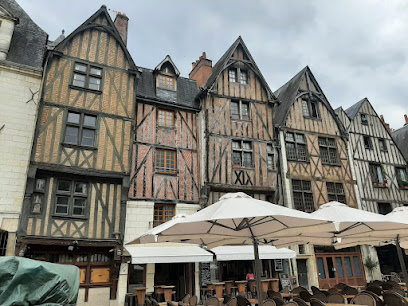
Basilique Saint-Martin de Tours
Explore the Basilique Saint-Martin de Tours, a breathtaking Catholic church blending history and spirituality in the heart of France.
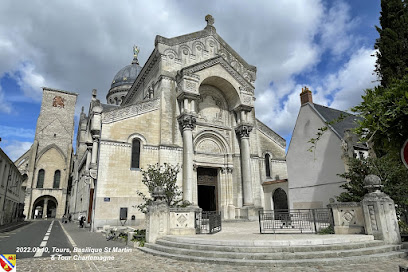
Collégiale Saint Martin et Tour Charlemagne
Experience the historical grandeur of Collégiale Saint Martin and Tour Charlemagne, a stunning monument in Tours rich with culture and breathtaking architecture.
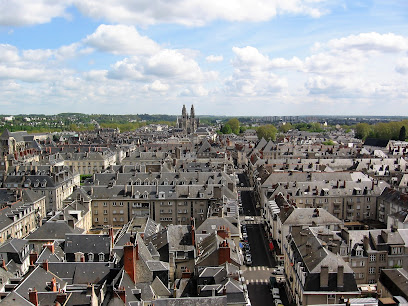
Place Plumereau
Discover the enchanting Place Plumereau in Tours, a historical landmark filled with vibrant culture, delightful cafes, and stunning medieval architecture.
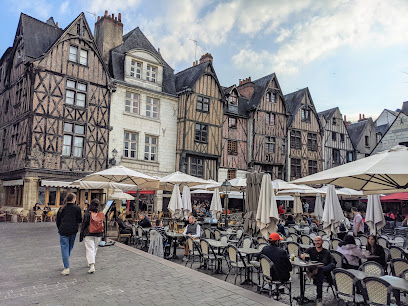
Place Jean Jaurès
Experience the vibrant atmosphere of Place Jean Jaurès, a historic square in Tours, where culture, cuisine, and community come together beautifully.
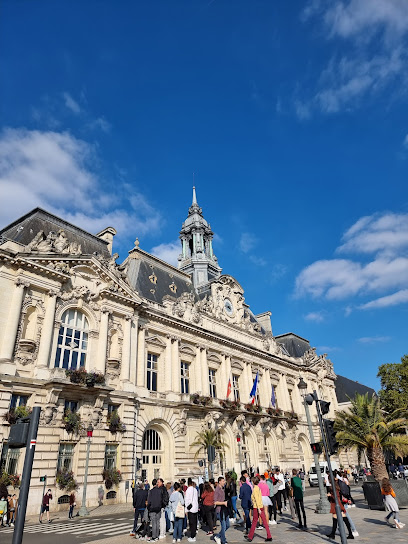
Le Monstre - Xavier Veilhan
Immerse yourself in the artistic essence of Tours at Le Monstre - Xavier Veilhan, a contemporary sculpture that captivates and inspires.
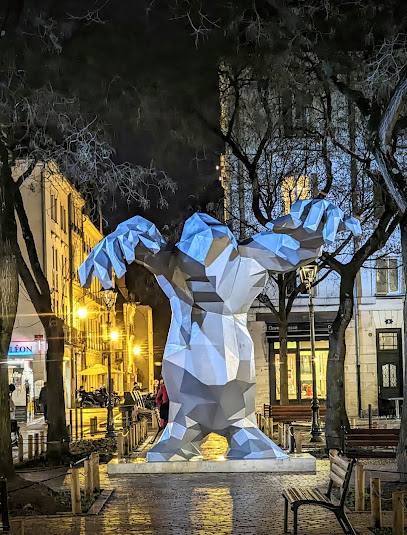
Tour de l'Horloge
Discover the historic Tour de l'Horloge, a stunning clock tower in Tours, France, symbolizing the city's rich heritage and architectural beauty.
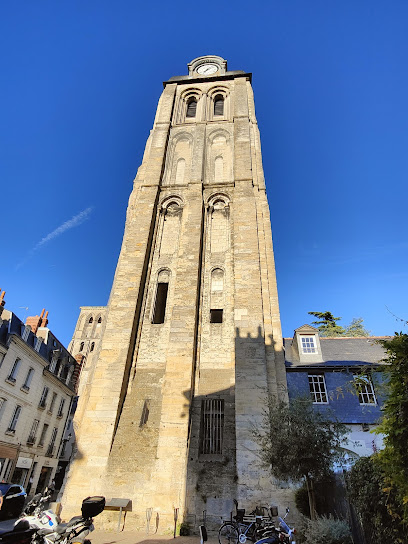
Place Porte de Loire
Explore the enchanting Place Porte de Loire, a vibrant hub of culture and beauty in Tours, France, perfect for leisurely strolls and local delights.
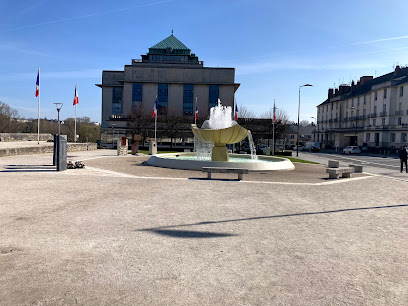
Portail de l'Hôtel des Trésoriers de Saint-Martin
Explore the Portail de l'Hôtel des Trésoriers de Saint-Martin, a stunning historical landmark in Tours, France, rich in architectural beauty and local history.
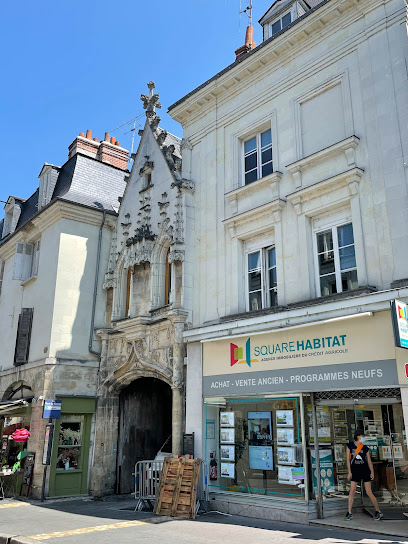
Maison
Discover the historical elegance of Maison, a remarkable landmark in Tours that showcases the city's rich architectural heritage and vibrant culture.
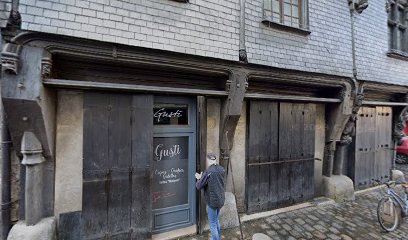
Unmissable attractions to see
Vieux Tours
Explore Vieux Tours, a charming medieval quarter in Tours, France, with cobblestone streets, half-timbered houses, and vibrant squares.
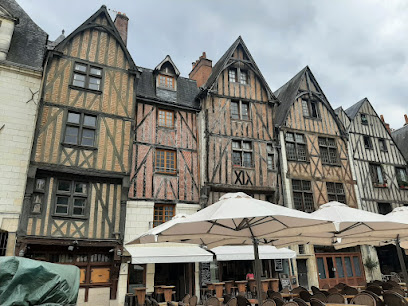
Prébendes d'Oé Garden
Discover a serene oasis in Tours: Jardin des Prébendes d'Oé, a historic park with lush landscapes, diverse flora, and tranquil water features.
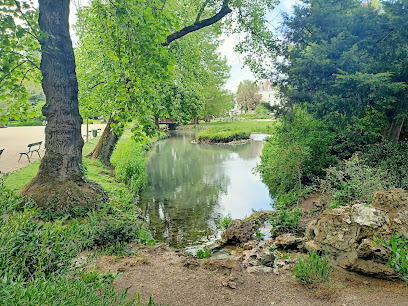
Collégiale Saint Martin et Tour Charlemagne
Explore Tours' historical heart at the Collégiale Saint-Martin and Tour Charlemagne, where centuries of history and architectural grandeur await.
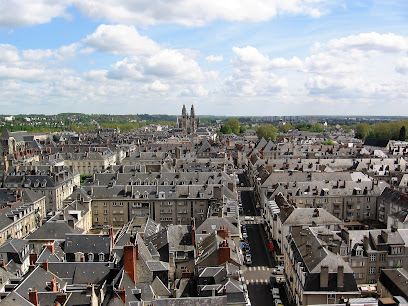
Place Plumereau
Experience the medieval charm of Place Plumereau in Tours, a vibrant square with half-timbered houses, lively cafes, and rich history.
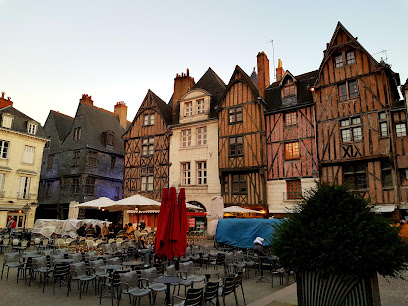
Place Jean Jaurès
Experience the vibrant heart of Tours at Place Jean Jaurès, a historic square offering culture, cuisine, and community in a beautiful setting.
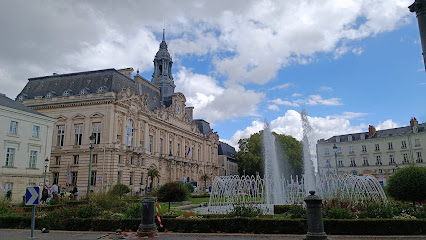
Tour de l'Horloge
Explore the historic Tour de l'Horloge in Tours, a remnant of the Basilica of Saint Martin, blending Romanesque architecture with timekeeping history.
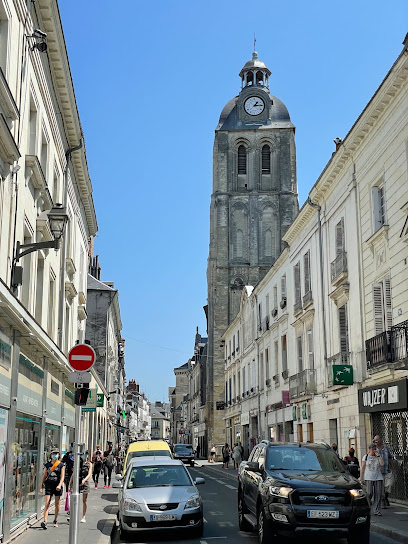
Essential places to dine
Le Comptoir de Mamie Bigoude Tours Centre
Experience authentic French cuisine in a charming setting at Le Comptoir de Mamie Bigoude in Tours.
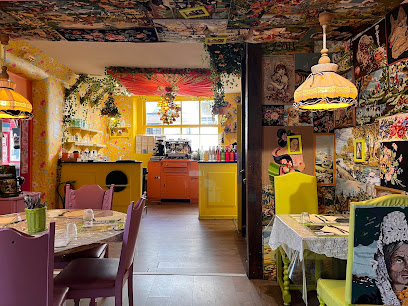
La Manufacture
Discover La Manufacture in Tours: A delightful blend of European cuisine and vibrant atmosphere perfect for every food lover.
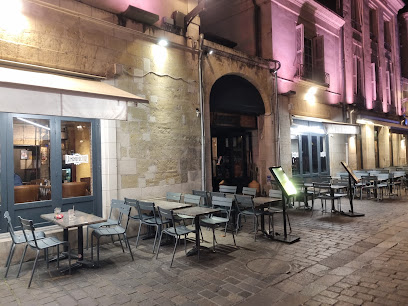
La Plume Blanche
Experience authentic French cuisine at La Plume Blanche in Tours – where tradition meets contemporary flair in every dish.
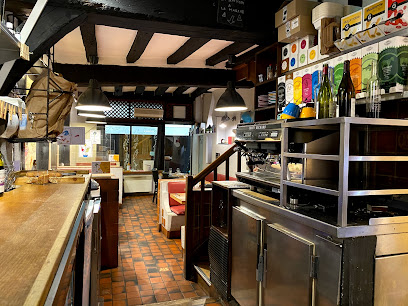
DAGOBERT
Discover the essence of French dining at Dagobert Bistro in Tours - where culinary tradition meets modern elegance.
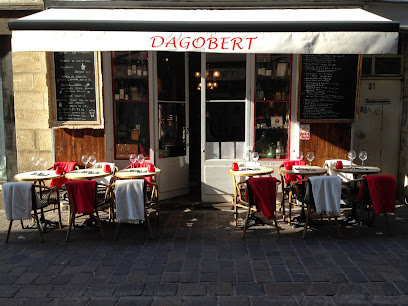
LA DEUVALIERE
Discover the exquisite flavors of France at La Deuvalière - a fine dining experience that tantalizes your taste buds in the heart of Tours.
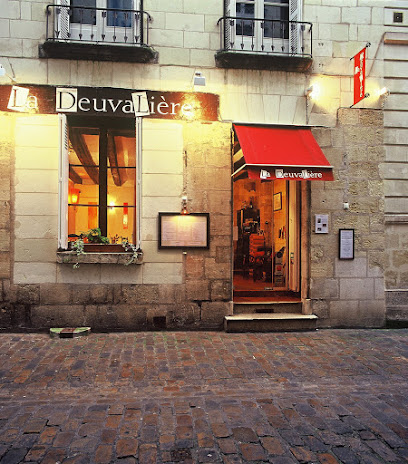
CHEZ MADIE
Experience authentic French cuisine at Chez Madie in Tours - where every dish tells a story.
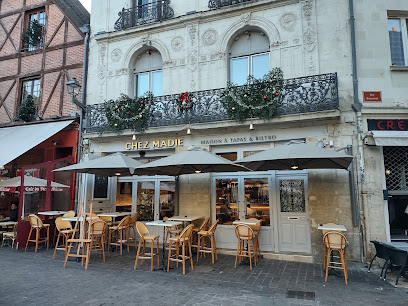
Le Marché Gourmand
Experience authentic French cuisine at Le Marché Gourmand in Tours, where tradition meets culinary artistry for an unforgettable dining experience.
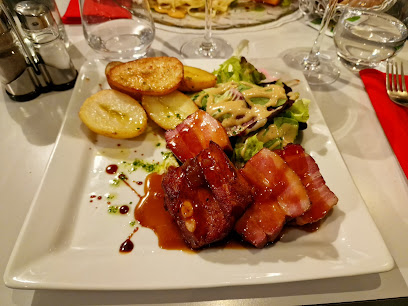
Café Bistrot Restaurant Le Vieux Mûrier
Experience authentic French cuisine at Café Bistrot Restaurant Le Vieux Mûrier in Tours – where every meal is a delightful journey into local flavors.
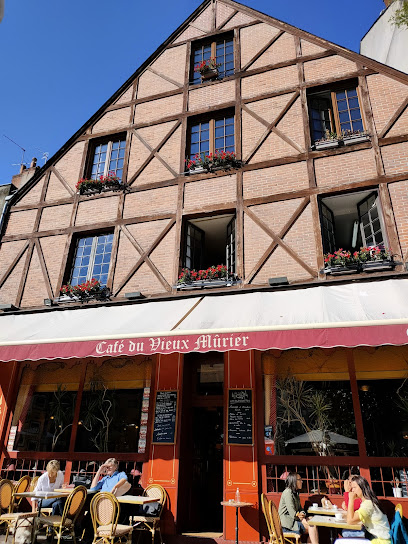
Restaurant Le Lys
Experience exquisite French cuisine at Restaurant Le Lys in Tours - where every meal is a celebration of flavors and hospitality.
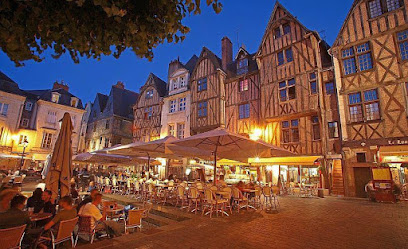
Les Frérots restaurant
Experience the essence of French cuisine at Les Frérots restaurant in Tours, where tradition meets innovation in every delicious dish.
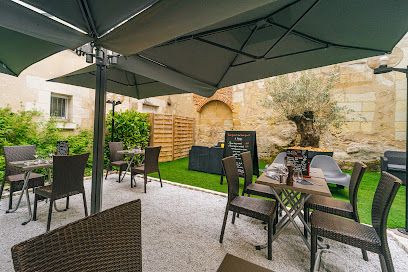
Markets, malls and hidden boutiques
Galeries Lafayette Tours
Explore Galeries Lafayette Tours for a unique shopping experience blending fashion, beauty, and local culture in the heart of France.
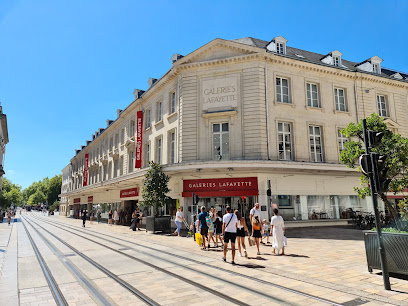
Shop Vintage
Discover unique vintage finds at Shop Vintage in Tours, where timeless fashion meets sustainable shopping.
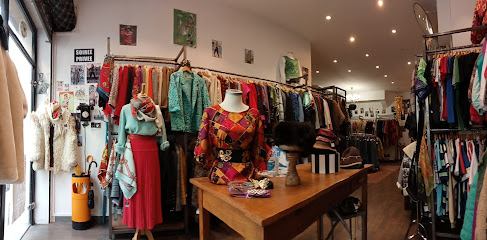
Victoryshop
Discover unique vintage clothing at Victoryshop in Tours, where every piece tells a story and every visit is a treasure hunt.
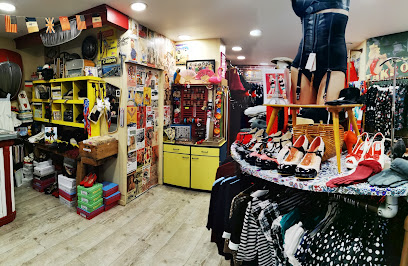
Maison Paon
Explore the charm of Tours at Maison Paon, a delightful gift shop offering unique treasures and exquisite paper products to remember your journey.
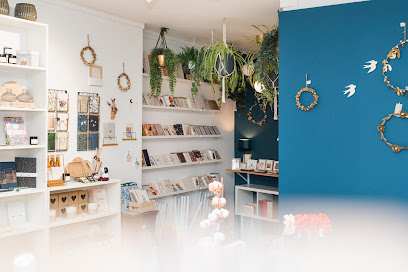
Gustave Concept Store
Explore unique gifts, stylish apparel, and gourmet treats at Gustave Concept Store in Tours, a perfect blend of local charm and creativity.
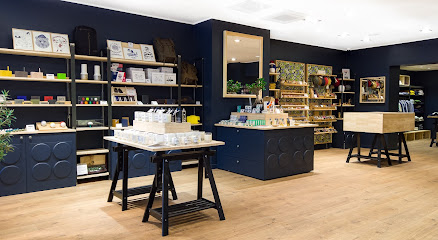
Image In Tours
Explore the enchanting gift shop, Image In Tours, for local treasures and unique souvenirs that embody the charm of Tours, France.
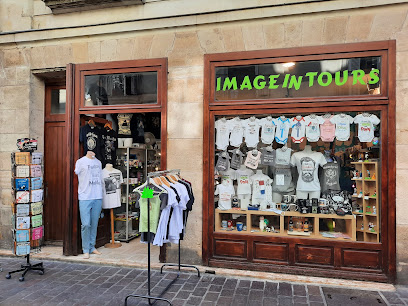
Vintage
Discover timeless elegance at Vintage, a charming jewelry store in Tours offering exquisite antiques and unique vintage clothing.
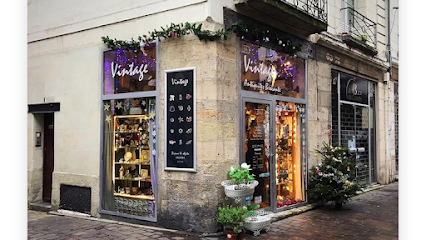
Augustine Concept Store
Experience the essence of Tours at Augustine Concept Store, a unique gift shop offering an array of fashion accessories, books, and local delicacies.
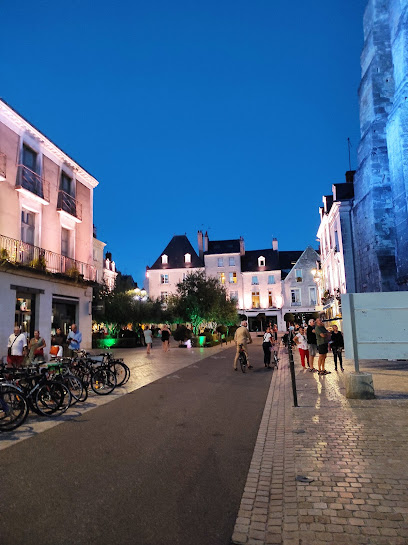
BOÊTHIK concept store Tours
Explore the artistic flair and unique fashion offerings at Boêthik, the premier concept store in Tours, France.
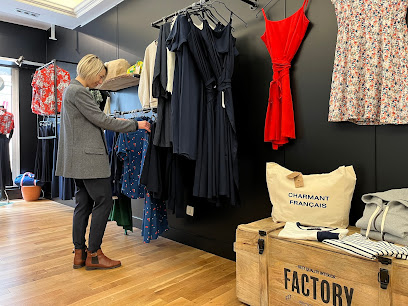
Plum & Co
Experience the charm of Plum & Co in Tours; a gift shop filled with unique souvenirs and local artisanal treasures that capture the essence of your travels.
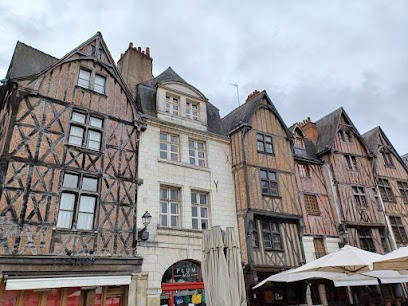
Essential bars & hidden hideouts
Café Bar Au Temps des Rois
Experience the enchanting ambiance of Café Bar Au Temps des Rois in Tours, where delightful drinks meet local culture in a stunning setting.
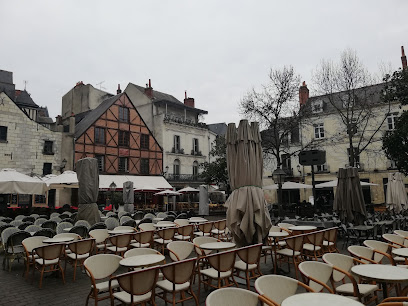
MC Cool's
Discover the lively atmosphere and extensive drink menu at MC Cool's, the perfect bar in Tours for a memorable night out.
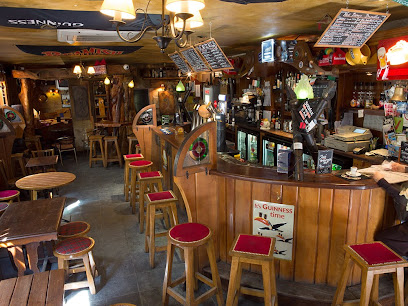
Au Fût et à mesure Tours
Discover the lively atmosphere of Au Fût et à mesure Tours, where craft beer, cocktails, and live music combine for an unforgettable night out.
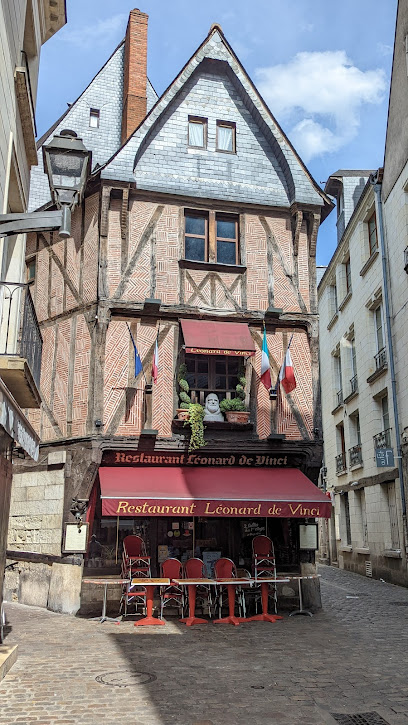
L'Alexandra
Discover the vibrant atmosphere of L'Alexandra in Tours, where great drinks and local culture come together in a charming bar experience.
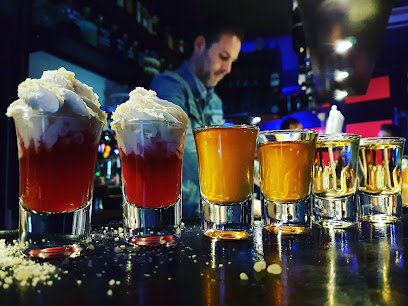
The Three Kings
Discover the vibrant atmosphere of The Three Kings Bar in Tours, where local culture meets delightful drinks in a historic setting.
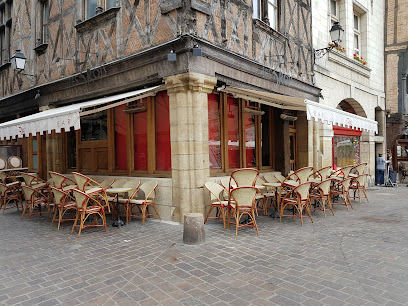
Bar the Hammock
Experience the vibrant nightlife of Tours at Bar the Hammock, where delightful cocktails and live music create an unforgettable atmosphere.
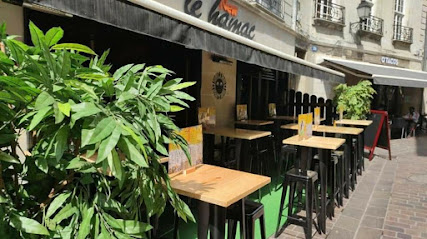
L'Epée Royale
Experience the vibrant atmosphere of L'Epée Royale, a charming bar in Tours, France, offering a diverse selection of drinks and live entertainment.
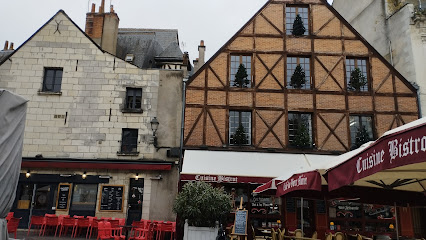
Outback Bar Tours
Experience the vibrant nightlife at Outback Bar Tours, where unique cocktails and a lively atmosphere await you in the heart of Tours, France.
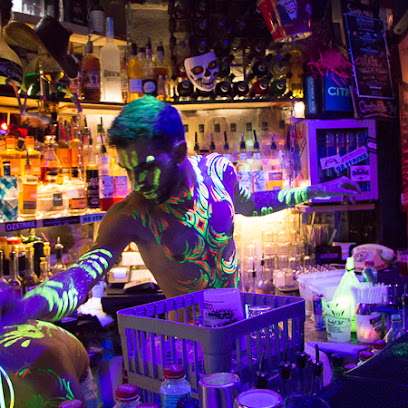
Jekyll Pub
Discover the lively ambiance of Jekyll Pub in Tours, where delightful drinks and friendly faces create unforgettable memories.
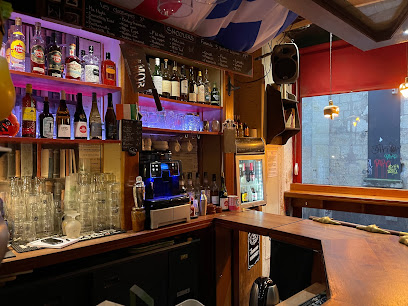
Crêperie Bar Cocktails La Cour
Discover the delightful flavors of Breton crêpes and innovative cocktails at Crêperie Bar Cocktails La Cour, a must-visit bar in Tours.
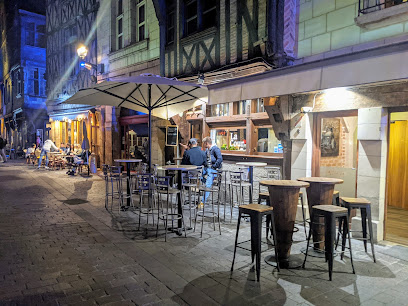
Local Phrases
-
- HelloBonjour
[bohn-zhoor] - GoodbyeAu revoir
[oh ruh-vwahr] - YesOui
[wee] - NoNon
[nohn] - Please/You're welcomeS'il vous plaît / De rien
[seel voo pleh / duh ryen] - Thank youMerci
[mehr-see] - Excuse me/SorryExcusez-moi / Désolé
[ehk-skew-zay mwah / day-zoh-lay] - How are you?Comment ça va?
[koh-mohn sah vah] - Fine. And you?Bien. Et vous?
[byehn. ay voo] - Do you speak English?Parlez-vous anglais?
[par-lay voo ahn-glay] - I don't understandJe ne comprends pas
[zhuh nuh kohm-prahnd pah]
- HelloBonjour
-
- I'd like to see the menu, pleaseJe voudrais voir la carte, s'il vous plaît
[zhuh voo-dray vwahr lah kart, seel voo pleh] - I don't eat meatJe ne mange pas de viande
[zhuh nuh mahnj pah duh vyand] - Cheers!Santé!
[sahn-tay] - I would like to pay, pleaseJe voudrais payer, s'il vous plaît
[zhuh voo-dray pay-ay, seel voo pleh]
- I'd like to see the menu, pleaseJe voudrais voir la carte, s'il vous plaît
-
- Help!Au secours!
[oh suh-koor] - Go away!Allez-vous en!
[al-lay voo zahn] - Call the Police!Appelez la police!
[ah-peh-lay lah po-lees] - Call a doctor!Appelez un médecin!
[ah-peh-lay uh meh-deh-sahn] - I'm lostJe suis perdu
[zhuh swee pair-doo] - I'm illJe suis malade
[zhuh swee mah-lahd]
- Help!Au secours!
-
- I'd like to buy...Je voudrais acheter...
[zhuh voo-dray zah-shay...] - I'm just lookingJe regarde juste
[zhuh ruh-gard zhewst] - How much is it?Combien ça coûte?
[kohm-byen sah koot] - That's too expensiveC'est trop cher
[say troh shair] - Can you lower the price?Pouvez-vous baisser le prix?
[poo-vey voo bey-say luh pree]
- I'd like to buy...Je voudrais acheter...
-
- What time is it?Quelle heure est-il?
[kell uhr ay eel] - It's one o'clockIl est une heure
[eel ay oon uhr] - Half past (10)Dix heures et demie
[dees uhr ay duh-mee] - MorningMatin
[mah-tahn] - AfternoonAprès-midi
[ah-pray mee-dee] - EveningSoir
[swahr] - YesterdayHier
[yehr] - TodayAujourd'hui
[oh-zhoor-dwee] - TomorrowDemain
[duh-mahn] - 1Un
[uhn] - 2Deux
[duh] - 3Trois
[twah] - 4Quatre
[kah-truh] - 5Cinq
[sank] - 6Six
[sees] - 7Sept
[seht] - 8Huit
[wheat] - 9Neuf
[nuhf] - 10Dix
[dees]
- What time is it?Quelle heure est-il?
-
- Where's a/the...?Où est...?
[oo ay...] - What's the address?Quelle est l'adresse?
[kell ay lahd-rehs] - Can you show me (on the map)?Pouvez-vous me montrer (sur la carte)?
[poo-vey voo muh mohn-tray (soor lah kart)] - When's the next (bus)?Quand est le prochain (bus)?
[kahn ay luh proh-shahn (boos)] - A ticket (to ....)Un billet (pour ....)
[uhn bee-yay (poor)]
- Where's a/the...?Où est...?
History of Vieux Tours
-
Vieux Tours, the historic heart of Tours, has its origins dating back to Roman times when it was known as Caesarodunum. The area became a significant settlement due to its strategic location along the Loire River, serving as a hub for trade and military activities. Remnants of Roman architecture, such as the ruins of the Roman amphitheater, can still be seen today, highlighting the neighborhood's ancient heritage.
-
The 10th to 15th centuries marked a period of prosperity for Vieux Tours, particularly during the reign of the Plantagenets. The neighborhood became a center of commerce, with its bustling markets and fairs attracting traders from across the region. The construction of significant structures, including the Saint-Gatien Cathedral, began during this era, showcasing the Gothic architectural style that characterized the period.
-
In the 16th century, Vieux Tours experienced a cultural renaissance, driven by the patronage of the French kings who favored the Loire Valley as a retreat from the capital. This era saw the construction of beautiful Renaissance-style houses, which still line the cobbled streets of the neighborhood. The blending of Italian and French architectural styles during this time left a lasting impact on the urban landscape of Tours.
-
The late 16th century was marked by the Wars of Religion, which had a significant impact on Vieux Tours. The city became a battleground for Catholic and Protestant forces, leading to destruction and upheaval. The aftermath of these conflicts shaped the neighborhood's religious landscape, with the rebuilding of churches and the establishment of new religious institutions reflecting the tensions of the time.
-
During World War II, Vieux Tours endured occupation and subsequent damage, particularly from air raids. The post-war period saw extensive reconstruction efforts to restore the historical integrity of the neighborhood. Today, Vieux Tours stands as a testament to resilience, with its restored medieval buildings and vibrant cultural scene attracting both locals and tourists alike.
Vieux Tours Essentials
-
Vieux Tours is easily accessible from other neighborhoods in Tours. You can walk from the city center, which is approximately a 15-minute stroll. For those arriving by train, the Tours railway station is about 1.5 kilometers away; you can take a local bus (Line 1 or 2) heading towards Place Plumereau or opt for a taxi for convenience. If you're coming from the airport, Tours Val de Loire Airport is around 7 kilometers away, and you can take a taxi or pre-arranged shuttle service to reach Vieux Tours.
-
Vieux Tours is best explored on foot due to its narrow, winding streets and charming architecture. Bicycles are also popular, with rental shops available nearby, and bike lanes on some roads. The local bus network (Fil Bleu) provides connections to other parts of Tours, with several stops around Vieux Tours. For a unique experience, consider renting an electric scooter available through various apps.
-
Vieux Tours is generally a safe area for tourists. However, it is wise to remain vigilant, especially in crowded places. Pickpocketing can occur, particularly around popular tourist spots like Place Plumereau. Avoid poorly lit streets at night and be cautious when interacting with strangers. While there are no specific high-crime areas targeting tourists, it's best to stay aware of your surroundings.
-
In emergencies, dial 112 for police, fire, or medical assistance in France. The nearest hospital is Centre Hospitalier Trousseau, located about 3 kilometers from Vieux Tours. For non-emergency medical situations, local pharmacies are available, and many pharmacists speak English. Ensure you carry travel insurance that covers medical emergencies.
-
Fashion: Do dress comfortably and appropriately for the weather. Don't wear overly casual attire when dining in restaurants. Religion: Do respect local customs, especially when visiting churches; cover your shoulders and knees. Public Transport: Do validate your ticket before boarding. Don't eat or drink on public transport. Greetings: Do greet locals with 'Bonjour' during the day and 'Bonsoir' in the evening. Don't skip greetings as it may be considered rude. Eating & Drinking: Do try local wines and cheeses. Don't rush your meals; dining is a leisurely affair in France.
-
To experience Vieux Tours like a local, visit the lesser-known cafés and bakeries tucked away from the main tourist paths. Engage with local artisans in the shops around Place Plumereau, and consider joining a wine tasting session to learn about the region's viticulture. Participate in local events or markets if available, and don’t hesitate to practice your French, as locals appreciate the effort.
Nearby Cities to Vieux Tours
-
Things To Do in Angers
-
Things To Do in Nantes
-
Things To Do in Limoges
-
Things To Do in Versailles
-
Things To Do in Rennes
-
Things To Do in La Rochelle
-
Things To Do in Paris
-
Things To Do in Caen
-
Things To Do in Rouen
-
Things To Do in Saint-Malo
-
Things To Do in St. Clement
-
Things To Do in Gorey
-
Things To Do in St. Helier
-
Things To Do in Trinity
-
Things To Do in St. Aubin













